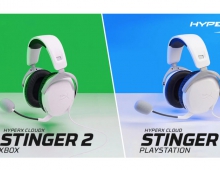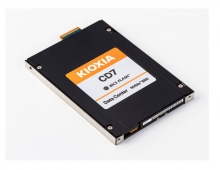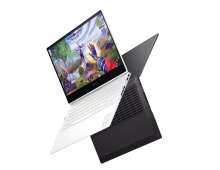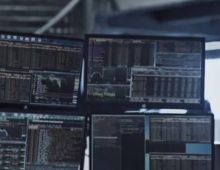
HP To Bring 3-D Motion Control to Its Products
HP will soon enable users to control its hardware by moving their hands in the air, as a result of a new deal between HP and a startup called Leap Motion.
HP is collaborating with Leap Motion, a motion-control software and hardware company, to bring 3-D motion control to HP devices. The relationship will start with the Leap Motion Controller bundled with select HP products and evolve to HP devices embedded with Leap Motion's technology.
Laap Motion is offering small sensor units, which it claims can track the individual movements of 10 fingers with 1/100th of a millimeter precision. The units can plug into any computer and allow the use of apps or software designed for motion-control sensors.
With a wave of a hand or lift of a finger, Leap Motion's small controller senses how you move your hands, the way you move them naturally. So you can point, wave, reach, grab or even pick something up and put it down. The units can plug into any computer and allow the use of apps or software designed for motion-control sensors.
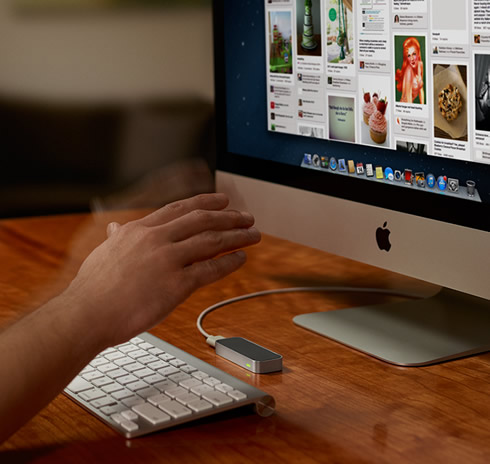
The sensors are on sale at major retailers for $80.
"Our focus at Leap Motion is to fundamentally improve how people interact with their devices, and offer as many ways as possible to achieve that vision," said Leap Motion co-founder and CEO Michael Buckwald. "The possibilities for innovation are incredible, when you think about what will come from this collaboration between two respected global leaders in their fields - HP, the world's largest technology company and Leap Motion, creator of the world's most powerful 3-D motion-control technology."
Leap Motion-enabled HP devices will come pre-loaded with Airspace, Leap Motion's application store. Inside Airspace, users will discover a wide range of software across gaming, music, education, art, productivity and more.
"Customers want to go to the next level when creating and interacting with digital content," said Ron Coughlin, senior vice president and general manager, Consumer PCs at HP. "Leap Motion's groundbreaking 3-D motion control combined with HP technology and amazing developer apps will create incredible user experiences."
The agreement comes at a time when tech manufacturers like Microsoft, Google and Apple have all expressed interest in motion-sensing technology.
Laap Motion is offering small sensor units, which it claims can track the individual movements of 10 fingers with 1/100th of a millimeter precision. The units can plug into any computer and allow the use of apps or software designed for motion-control sensors.
With a wave of a hand or lift of a finger, Leap Motion's small controller senses how you move your hands, the way you move them naturally. So you can point, wave, reach, grab or even pick something up and put it down. The units can plug into any computer and allow the use of apps or software designed for motion-control sensors.

The sensors are on sale at major retailers for $80.
"Our focus at Leap Motion is to fundamentally improve how people interact with their devices, and offer as many ways as possible to achieve that vision," said Leap Motion co-founder and CEO Michael Buckwald. "The possibilities for innovation are incredible, when you think about what will come from this collaboration between two respected global leaders in their fields - HP, the world's largest technology company and Leap Motion, creator of the world's most powerful 3-D motion-control technology."
Leap Motion-enabled HP devices will come pre-loaded with Airspace, Leap Motion's application store. Inside Airspace, users will discover a wide range of software across gaming, music, education, art, productivity and more.
"Customers want to go to the next level when creating and interacting with digital content," said Ron Coughlin, senior vice president and general manager, Consumer PCs at HP. "Leap Motion's groundbreaking 3-D motion control combined with HP technology and amazing developer apps will create incredible user experiences."
The agreement comes at a time when tech manufacturers like Microsoft, Google and Apple have all expressed interest in motion-sensing technology.




